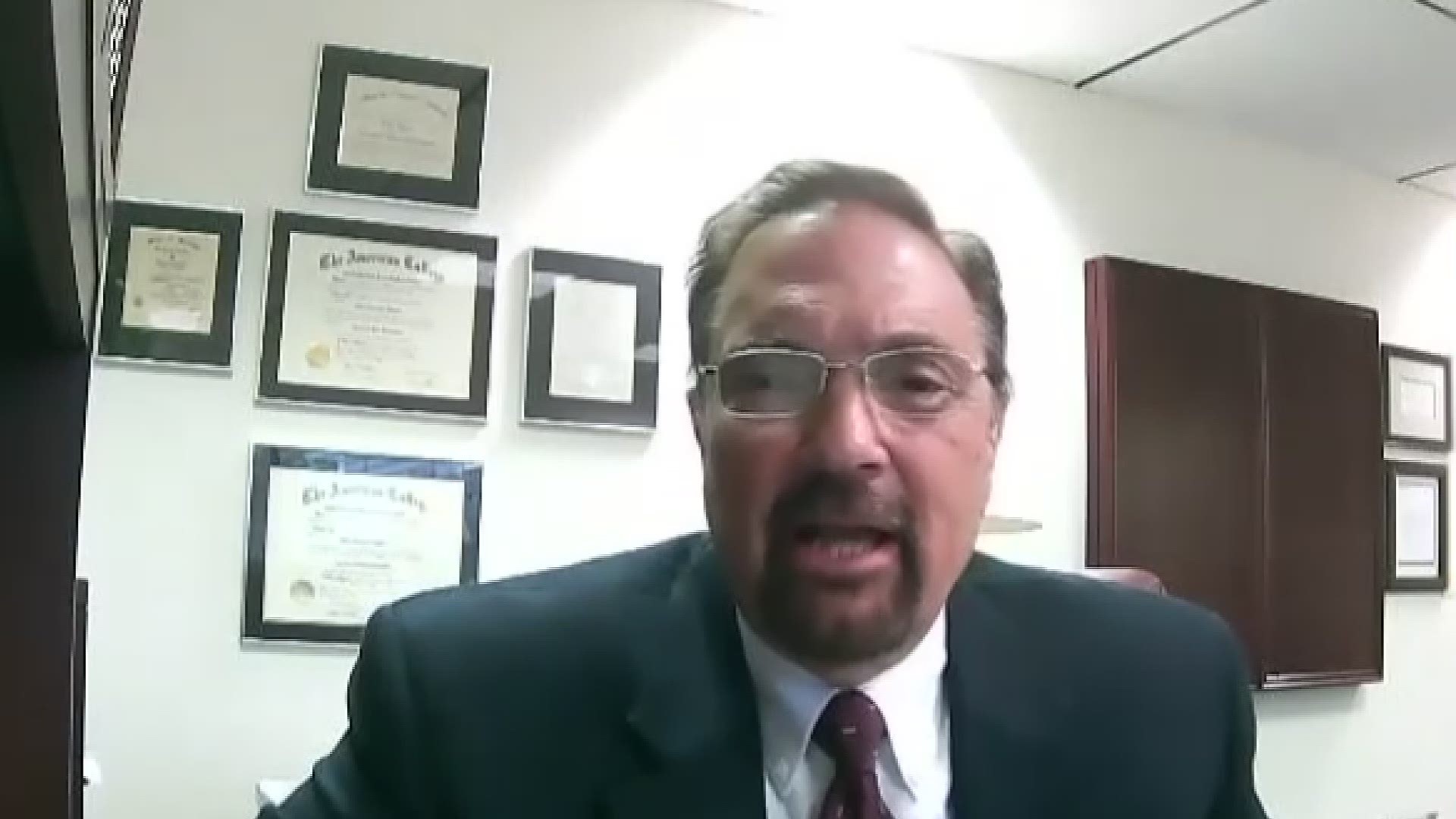GRAND RAPIDS, Mich. — Financial experts have been saying it for years. Start saving early, and even a little bit can go a long way if you give it enough time. It's still true today, even during a pandemic, and when the stock market shows a lot of volatility. In fact, if you aren't close to retirement, a drop in the stock market could be an opportunity in disguise. Investing more money when the stock market is down, could actually help you earn more in the long run.
Rick Myers, a Certified Financial Planner, spoke to 13 ON YOUR SIDE about how many of his clients have responded to the ups and downs of the economy in 2020. He says, how people have fared, and will continue to fare, depends on multiple factors. One of the biggest things that impact their situation: how close they are to retirement.
"We’ve all experienced this financial storm, however, where you’re at, both in risk tolerance and in life position has a big difference," Myers said.
For example, if a person is 35 and saving for retirement, you are disappointed with your 401(k) earnings for the first quarter of 2020. However, you don't need to be worried that your overall savings balance in that account has taken a hit. You won't need to draw on that money for years, unless you are willing to take a big tax hit.
For someone who is 60 and considering retirement in the next few years, the hit to their 401(k) is a much bigger problem. That's the money they set aside to help sustain them through retirement when they aren't working to earn an income.
For someone who is in their 50s, losing their job means they must make difficult decisions about spending and saving money. Someone who is suddenly without income now has to consider how she will pay for her child's schooling, if the family vacation she was planning for next year is still viable, or if she can get a few more years out of her old and struggling car.
"While we’re all in this together, we’re all responsible for our own financial house and so where you’re at, the preparation you have, that largely determines what your outcome will be," Myers explained.
But the changes and upheaval we have seen this year are impacting more than just our 401(k). Many people, if they are able, are saving more money because our current situation has driven home the concept that we never know what might happen. Myers says people are asking a lot of questions about what could be coming. "They’re wondering, 'is my job next?' 'Is this economic recovery that seems to be present in the stock market, really dependable?' 'Is it going to be a V shaped recovery or is this the eye of the hurricane and there’s something more on the other side?' and so people don’t know, and they are reevaluating that."
To help keep yourself and your family's economic situation as stable as possible no matter what volatility or uncertainly is in store, there are a few things to keep in mind. First, an emergency savings fund. Myers says having 3-6 months of living expenses saved up is a good rule of thumb. He recommends you keep putting money there if you are able. Second, utilizing the stock market volatility to your advantage.
If you don't plan on retiring any time soon, investing in a down market is usually a good bet. History has shown that when we have a bear market, the market does eventually correct itself. Buy when stocks are low, and when they begin to recover, you're shares will be worth more. But, that's if your timeline to retirement is still a long one. If you are closer to, or even at the age, when you are hoping to draw on those investments as a way to pay your bills, a down market is a much bigger problem. Myers recommends that to keep this from happening to you in the future, you should change your types of investments as you get older. Younger people typically have a higher risk tolerance, and can ride out the ups and down of the stock market.
People in their 60s or 70s typically don't have the same ability to wait for a market correction. "Sometimes, like in 1973, 74, it took 9 years for the market to recover," Myers says. "There’s a useful general financial planning tool, often that we use, called the rule of 100. And what that means is you take the number 100 and you subtract your age and that resulting number or sum is the amount you’d have at risk. So if you’re 35 and you take that away, you’d have 65% that you might have in equities or stocks. If you’re 70 years old, maybe you only have 30 percent. And in that way, as we get older, we are simpler and safer with our money because we don’t have the years necessary to recover if we have financial adversarials."
Myers encourages his clients to plan for the worst, and hope for the best. He points out that the economic downturn between 2001 and 2009 was very bad at the time, but the markets have recovered and are even up 300% from the March 2009 lows. "The government has taken unprecedented actions to stimulate the economy, with both the unemployment and PPP program, that has helped a lot of businesses but the jury’s still out as to the long term impact of this," he says. "Keeping extra liquidity, taking a close look at your diversification, at your allocation, not having speculative exposure, especially as you grow older. That is so important. As your grandmother might have told you, don’t gamble with money you can’t afford to lose."
The last thing that Myers recommended was a financial plan and estate plan. By establishing a will, creating a trust, and having durable financial and medical powers of attorney, you can help keep your family financially stable, even after you are gone. Having your financial house in order is a big part of that. The COVID-19 virus has brought this to the forefront of many people's minds, as the virus continues to infect more people nationwide.
RELATED VIDEO:
►Make it easy to keep up to date with more stories like this. Download the 13 ON YOUR SIDE app now.
Have a news tip? Email news@13onyourside.com, visit our Facebook page or Twitter. Subscribe to our YouTube channel.


